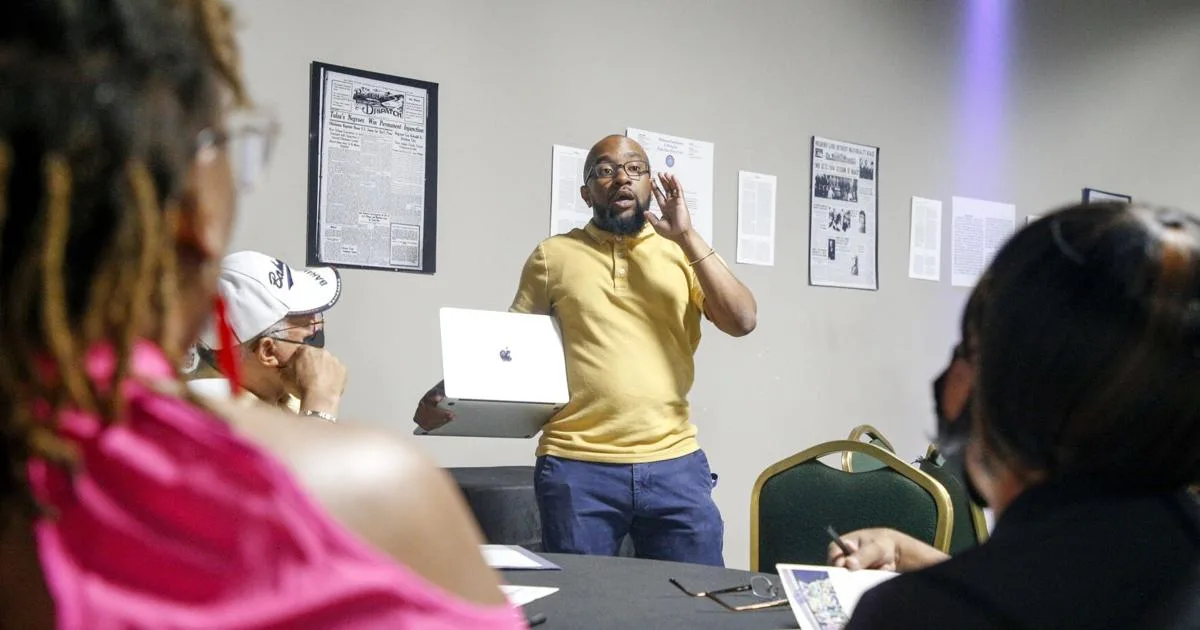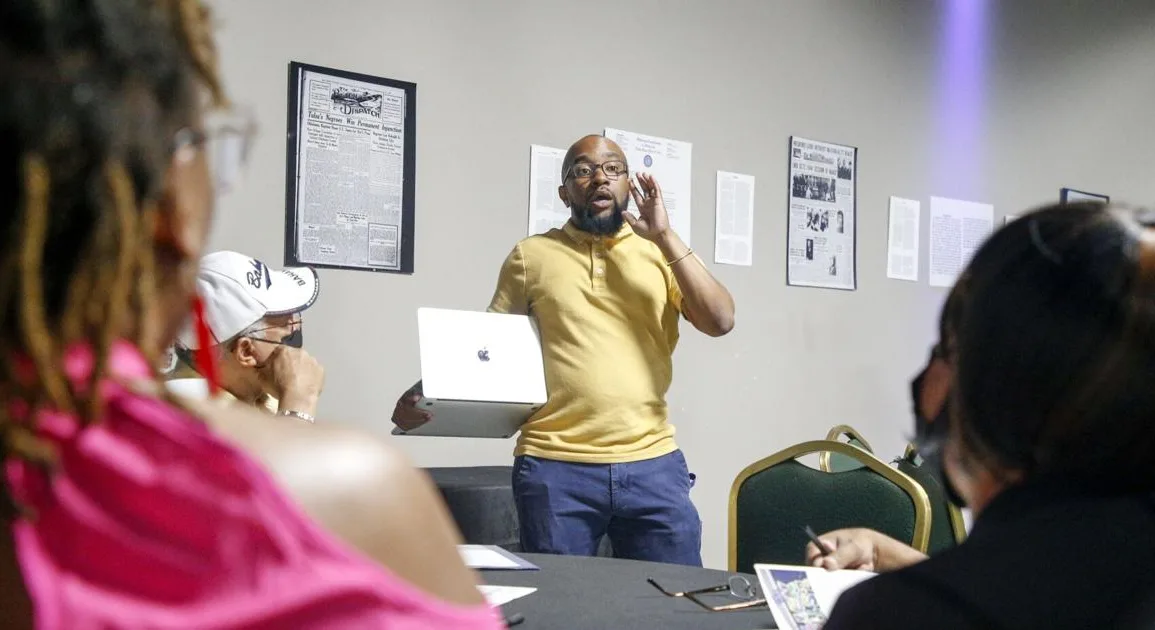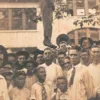
The city of Tulsa is being asked to consider creating a government-sanctioned commission or task force “to establish and implement the terms of a reparations program” for descendants and survivors of the 1921 Tulsa Race Massacre.
That is the recommendation of the Beyond Apology report released Monday.
The document summarizes the findings of last year’s Beyond Apology program, a series of public discussions designed to educate the public on the Race Massacre and on possible forms of reparations and repair. Participants were also invited to offer suggestions regarding how Tulsa could provide redress for the harm caused during the deadly conflagration.
“The scope (of the commission’s work) should at the very least include survivors and descendants of the Tulsa Race Massacre and Black Tulsans who have been impacted by discriminatory policies and practices,” the report states. “Furthermore, the make-up of the above mentioned task force or commission should ensure overwhelming representation from the communities most impacted by the harm.”
People are also reading…
The recommendation to establish a commission was put forth by the team that created and implemented the Beyond Apology program. It comprises the community development firm Standpipe Hill Strategies, whose team includes descendants of the Race Massacre, and World Won Development, according to the report.
Greg Robinson, project manager for Beyond Apology and founder of Standpipe Hill Strategies, said it would be up to the commission to propose actionable items for repair and reparations.
“The reason that is our only recommendation is that the report and the process — when you look at all the other reparations movements — they have to be endorsed, … if not led, in partnership with a public entity that is wanting to do repair,” Robinson said. “And so there was never a way for the community to lead to reparations. It has to be something that comes endorsed by the city or what have you.”
At least 37 people were killed and thousands more were displaced in the Greenwood District during the events of May 31-June 1, 1921. The actual number of deaths is widely believed to be much higher, but comprehensive records were not kept.
The Beyond Apology report is scheduled to be presented to the City Council on Feb. 7, followed by a presentation to the public the next day.
The initiative consisted of four public meetings that drew 256 unique participants, 83 of whom offered their perspectives and priorities on how the city should address the issue. Of the 83, about one-fifth were descendants of the Race Massacre.
Their priorities, in descending order, were education; financial compensation; community and economic development; housing and home ownership; land; health and wellness; systems change/policy; and cultural identity.
The report also provides comparative data showing what reparations and repair recommendations were made in the Race Massacre reports issued by the Oklahoma Legislature and Human Rights Watch.
The Beyond Apology report intentionally avoids proposing specific action items, Robinson said, and instead offers the community’s perspectives and priorities to help inform the commission’s work.
“We just felt like trying to create actionable recommendations when we don’t have the city at the table, that wouldn’t have been realistic,” Robinson said.
When it came to those prioritizing financial compensation, nearly 70% specifically supported direct payments, according to the report.
“What we found was that people said, look, direct payments to survivors and to descendants should be prioritized,” Robinson said. “What they didn’t say is how that should be done.
“There was not a lot of data around (it) should be done this way, and so we think that there is enough room to come up with ways to do that, and we in the report, on purpose, don’t try to prescribe this is exactly the way that you should do that.
“What is clear, based on what people said, was, it feels fair and just for that to be a priority in this conversation.”
District 1 City Councilor Vanessa Hall-Harper, who represents most of the Greenwood District, said she would support establishing a commission or task force to move the Beyond Apology effort forward.
“Nationwide there are a lot of these types of task forces or commissions that have been created by local and state governments, so I think that is definitely in line with what the recommendations are,” Hall-Harper said.
She said she was not concerned that the participation numbers failed to provide an accurate reflection of the community’s sentiments on the subject.
“Those who wanted to participate had ample opportunity to do so, and if they didn’t or chose to not, it is probably because they believe that it’s probably not for them to say,” Hall-Harper said. “And if what someone was already thinking was already listed, then why repeat it?”
Robinson noted that the Beyond Apology program drew participants from 70% of the city’s ZIP codes and from every City Council district.
“That was one of the things I was hoping for,” Robinson said. “Obviously, north Tulsa, District 1, was the most represented for sure. But there was still widespread representation.”
The framework for community-led discussions was established after city councilors and Mayor G.T. Bynum approved in June 2021 a nonbinding resolution pledging to make “tangible amends” for the harms caused by the race massacre.
Nothing in the City Council’s resolutions pledging to make tangible amends and establishing the Beyond Apology process obligates the city to provide reparations.
Bynum has said previously that he does not support reparations in the form of direct payments to victims or their descendants.
On Tuesday, Bynum said he had yet to see the Beyond Apology report so he could not discuss its specific recommendations.
“I have requested a meeting with the team that developed it in order to better understand what they learned during the process and what they recommend,” Bynum said. “I look forward to that meeting and will reserve comment on their report until we have had an opportunity to discuss it.”
The new Tulsa World app offers personalized features. Download it today.
Users can customize the app so you see the stories most important to you. You can also sign up for personalized notifications so you don’t miss any important news.
If you’re on your phone, download it here now: Apple Store or Google Play



